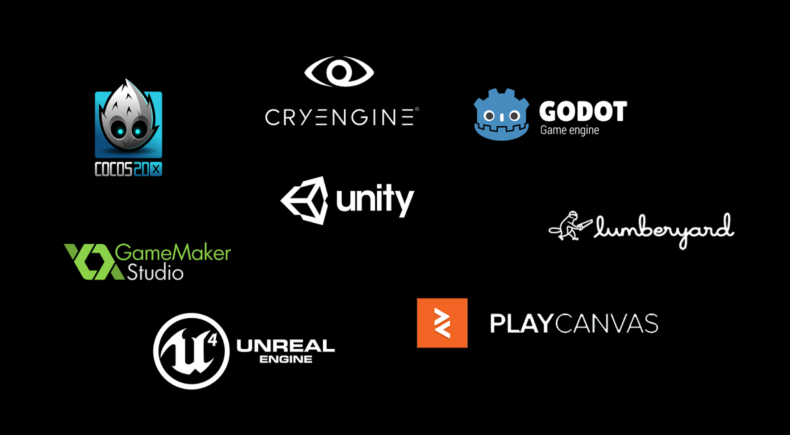Unless you have lived the past 35 years under a rock, chances are you have heard something about Nintendo.
According to Statista, in 2021, this company was the leading video game publisher in Japan with a whopping market share of almost 33%, surpassing Capcom (10.92%), The Pokémon Company (10.79%) and Konami (6.46%) combined.
A massive success in the gaming and console markets, Nintendo has been one of the average gamer’s favorite studios for decades. It boasts an impressive variety of critically acclaimed franchises under its belt, such as Mario, Pokémon, The Legend of Zelda, Donkey Kong and Splatoon to name a few, satisfying the demands of casual and hardcore gamers alike.
This success would of course raise some questions and one of the most asked among game developers is “What game engine does Nintendo use?”
In this post, we will dive deeper into this question, give you some reasons to create proprietary engines and talk you through the cost of making one yourself.
With this in mind, get your imaginary joystick and press start to get rolling!
Which game engine does Nintendo use for their games?
Unlike most solo and independent (indie) developers do, Nintendo generally uses their own proprietary (or “in-house”) engines for game development – and there are many of them! In spite of that, Nintendo will, on occasion, explore engines such as Unity and Unreal to develop prototypes and games of smaller scopes.
As they don’t intend to license their engines out to other game development studios and they don’t publicize their names, this information ends up being little known by the average consumer.
Furthermore, licensing an internal engine to third-party developers would also create the need to document and support the tool, incurring additional costs that may not be worth it in the long run.
There is, however, an exception: NintendoWare Bezel Engine, a custom middleware solution used in Super Mario Party and Tetris 99. This engine was presented at the 2018’s Game Creator’s Conference as is targeted to third-party licensees who want to make games for Nintendo Switch and other platforms.
Why make an in-house engine?
One of the main reasons to create a proprietary game engine is to avoid paying royalties and/or licensing costs they would otherwise incur.
Another strong point in their favor is that developing an in-house game engine allows for deep, customized optimizations to be made while also granting full access to the development team. With those perks in mind, artists and game creators can push the boundaries on what we know is possible.
Very well optimized game engines allow games to be run with better, more detailed graphics without affecting performance, which is ALWAYS a good thing if you take into account that 3 in 4 players feel that graphics play a part in their decision to buy a new game.
Furthermore, game engines that run optimally enable matches with insane player counts to happen with little to no issues – think of MAG (PS3), which could handle 256 players in a single multiplayer match simultaneously!
Proprietary engines tend to be a lot more specialized than their commercial alternatives since they don’t need to support a wide variety of games. Considering that most companies specialize in just a few genres, the creation of an in-house engine allows companies to add features as needed, quickening the development speed and enhancing platform customization.
One could also argue that a custom game engine can be used as a marketing tool and as a way to troubleshoot faster. Most commercial engines don’t allow developers to access its source code, so companies would have to sit and wait until the engine-makers fix the issue in case of a serious bug.
What’s the cost of making a game engine?
As outlined in our other article, developing an in-house engine can be either very expensive or very time-consuming. Or maybe both depending on your requirements, which are different from game to game!
In short, creating a custom engine requires deep understanding of the basic components of a game. You will have to create and implement the graphics engine, the physics engine, an audio system, a way to add scripts and, if your game has multiplayer elements, a networking system from scratch – which is a LOT of work.
Experienced in game development or not, we wouldn’t recommend you to create a proprietary engine from ground up unless you are a hobbyist or you’re interested in a career in creating and maintaining a game engine. Game creators who just want to focus on the actual making of the game should instead just look for an out-of-the-box engine to work with.

Conclusion
Even though in-house game engines have their fair share of perks, this doesn’t mean that they are better than the ones available on the internet. Like all things in life, every tool has its own purpose for existing and it’s no different when it comes to commercial engines.
It’s true that some games require so many specific features that creating one from scratch ends up as the best solution, but this is often not the case – especially for those who are just starting out.
We understand, as game developers ourselves, that making games take a lot of time and effort. As such, doing everything with care from the start is a must to avoid setbacks down the line. The best way to accomplish this is to work with qualified professionals who understand the ins and outs of game development.
At Main Leaf, we work on demand to bring fantastic games to life, and we would be pleased to do so for you! If you got interested, make sure to go to the top of this page and get in contact with us by requesting a free game quote today. We promise to get back to you as soon as we can!

